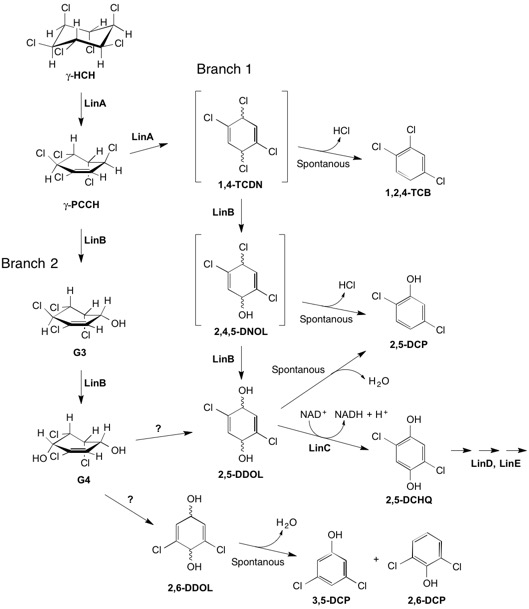Department Environmental Chemistry
Enzymatic studies of hexachlorocyclohexane dechlorination
Hexachlorocyclohexanes were extensively used during the last century as insecticides for the control of agricultural pests. Their persistence and the large amounts of contaminated soil, make this class of persistent organic pollutants a major environmental Problem.
Biodegradation and bioremediation are paramount processes to mitigate HCH isomers in the environment and several studies have shown that bioaugmentation and biostimulation approaches have a promising potential for remediating low-level HCH-contaminations in agricultural environments. However, there are open questions to be answered with regard to the fate of the various HCH isomers, the mechanisms governing HCH isomer turnover, and in particular the methodology for assessing success of HCH-turnover in environmental settings, before such bioremediation approaches can be unconditionally promoted for use in large scale field applications. In this context, compound-specific isotope analysis (CSIA) offers unique opportunities to assess both the extent and the pathways of HCH biotransformation.

